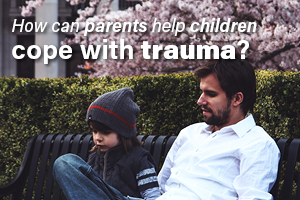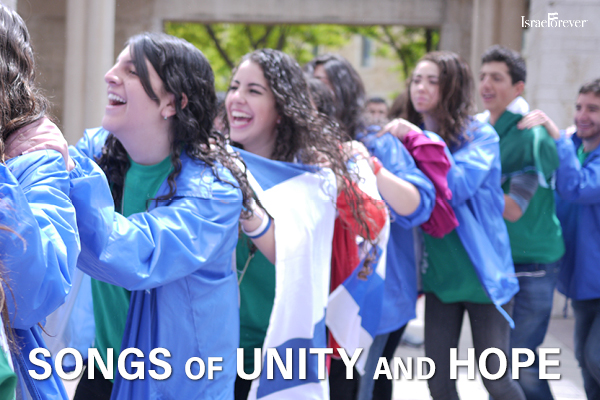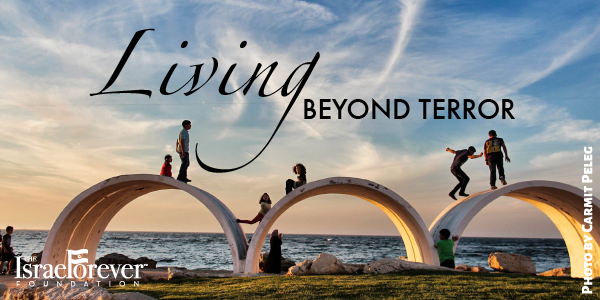Coping with Trauma: Tips and Activities for Parents and Children
Antisemitic events, terrorist attacks and any kind of trauma are scary because they make us feel out of control. That’s why we’ve gathered this list of tips and actions you can take to help yourself and your children cope with traumatic events. When you can provide calm, action oriented direction, your children will feel better and you will too!
LISTEN TO CHILDREN:
- Make it natural - You know your children better than anyone else. Create a time and place for children to ask their questions in a way that seems as natural as possible to them. Don't force them to talk about things until they're ready.
- Keep it simple. Ask open-ended questions to assess their state of mind, level of curiosity/concern. Their answers will help you respond in a way that is appropriate for each individual child.
These are some examples of questions you could ask: Did you hear about something that happened? How does it make you feel? How do you express feelings? What do you do when you're angry? What do you do if you're sad? How do you respect people's differences? Remember that children tend to personalize situations. For example, they may worry about friends or relatives who live in a city or state associated with incidents or events. If your child makes such an association it is good to address that specific concern. - Pay attention to the questions you are asked. “Am I going to be okay?' or 'Why do these bad guys do such terrible things? Will life ever be the same again? And could this happen here?', "Why do people want to hurt us?" or "Why do the terrorists hate us?" are all normal questions for people of any age. WIth children, the key is to notice that they are making this personal. You can respond by assuring them “They don't hate us, they don't even know us," so as to prevent the child from becoming absorbed with the idea that they personally are hated by scary, very violent people who might crawl in their window at night.
- Don't confront or negate your child's way of handling events. If a child feels reassured by saying that things are happening very far away, it's usually best not to disagree. The child may need to think about events this way to feel safe.
ANSWER CHILDREN'S QUESTIONS:
- It is important to tell children the truth, in a factual, age appropriate and non-dramatic manner. Children who discover that their parents whitewashed events, learning negative details from others, can feel betrayed by their parents (or responsible adult). This damage of trust can undermine a child’s feeling of safety more than learning about something traumatic that happened to other people.
- Validate their feelings. Acknowledge and support your child's thoughts, feelings, and reactions. Let your child know that you think their questions and concerns are important. Use words and concepts your child can understand. Make your explanation appropriate to your child's age and level of understanding. Don't overload a child with too much information.
- Be prepared to repeat explanations or have several conversations. Some information may be hard to accept or understand. Asking the same question over and over may be your child's way of asking for reassurance.
- Be consistent and reassuring, but don't make unrealistic promises. Remember that children learn from watching their parents and teachers. They are very interested in how you respond to events. They learn from listening to your conversations with other adults. If our tone of voice conveys confidence in the people who are ensuring our safety and in stepping up the efforts to prevent this from happening again, then our children are reassured.
- Avoid stereotyping groups of people by race, nationality, or religion. Use the opportunity to teach tolerance and explain prejudice. Keep personal politics out of the discussion. Children hear these divisions as examples to follow, so try to avoid projecting blame or hostility.
TAKE ACTION, TOGETHER:
- Create an outlet for expression - Help children find ways to express themselves. Some children may not be able to talk about their thoughts, feelings, or fears. They may be more comfortable drawing pictures, playing with toys, or writing stories or poems directly or indirectly related to current events. Activities can create opportunities for discussion that seem less serious or stressful than a direct dialogue.
- Idea: Make a list with your child of all the good people you know to show him or her what a great support system he or she has. Sit and write with your child a story and draw pictures that share the names and experiences of friends, community, family. Keeping them engaged on an inspirational subject can increase the feeling of calm and peacefulness for any child. Explore our activities and crafts here for ideas to help you!
- Share stories that demonstrate the power of human will and survival, stories that inspire. Teach your kids about heroes that overcame trauma and became an inspiration for others such as Miriam Peretz, Kay Wilson, Ari Fuld and Sherri Mandell are a few examples.
- One solution might be personal empowerment via self-defense lessons. Martial arts are one way to provide structure, discipline and confidence - qualities that are important for people of all ages to gain, even when no trauma has occurred.
- Develop a family emergency action plan to make kids feel safer. Have kids get batteries for flashlights, have water stored somewhere, talk about how you would get in touch if the phones weren't working, who would pick them up from school - role play and being given age appropriate responsibilities gives children a feeling of confidence that they will be able to cope should a problem occur.
- Do an activity with your child to show that they have the power to make others feel better. The Israel Forever Letters of Friendship is one easy way to do that. The best way to help yourself is by helping someone else!
Let us know what other activities and ideas you came up with!
CREATE A SUPPORTIVE ENVIRONMENT:
- Children who have experienced trauma or losses may show more intense reactions to both tragic or even average daily encounters. They may create scenarios on their imagination, can become startled by small noises, and become suddenly shy or afraid especially in social situations. All children need extra support and attention, and patience is your most important tool to assisting them.
- Model good coping skills. Be honest with your children about how hard it is for you, and share your own thoughts on how to fight the sadness or negativity and find your smile again.
- Don't let children watch lots of violent or upsetting images on TV. Repetitive frightening images or scenes can be very disturbing, especially to young children. Be aware of their presence and being in earshot when you are watching the news or even scrolling social media on a visible screen.
- Watch for physical symptoms related to stress. Many children show anxiety and stress through complaints of physical aches and pains.
- Help children communicate with others and express themselves at home. Some children may want to write letters to the grieving families, community leaders, local politicians, or to their own family and friends sharing their thoughts and feelings.
- Help children establish or maintain a predictable routine and schedule. Children are reassured by structure and familiarity. School, sports, birthdays, holidays, and group activities take on added importance during stressful times.
- Children who seem preoccupied or very stressed about war, fighting, or terrorism should be evaluated by a qualified mental health professional. Other signs that a child may need professional help include: ongoing trouble sleeping, persistent upsetting thoughts, fearful images, intense fears about death, and trouble leaving their parents or going to school.
- Watch for possible preoccupation with violent movies or war themed video/computer games.
- Coordinate information between home and school. Parents should know about activities and discussions at school. Teachers should know about the child's specific fears or concerns. Communication between fellow parents can be a very instrumental asset to coping in traumatic situations.
- Let children be children. They may not want to think or talk a lot about these events. It is OK if they'd rather play ball, climb trees, or ride their bike, etc.
Adapted from HERE
Recommended for you:
About the Author

Dr. Elana Yael Heideman, CEO of Israel Forever, is a dynamic and passionate educator who works creatively and collaboratively in developing content and programming to deepen and activate the personal connection to Israel for Diaspora Jews. Elana’s extensive experience in public speaking, educational consulting and analytic research and writing has served to advance her vision of Israel-inspired Jewish identity that incorporates the relevance of the Holocaust, Antisemitism and Zionism to contemporary issues faced throughout the Jewish world in a continuous effort to facilitate dialogue and build bridges between the past, present and future.








